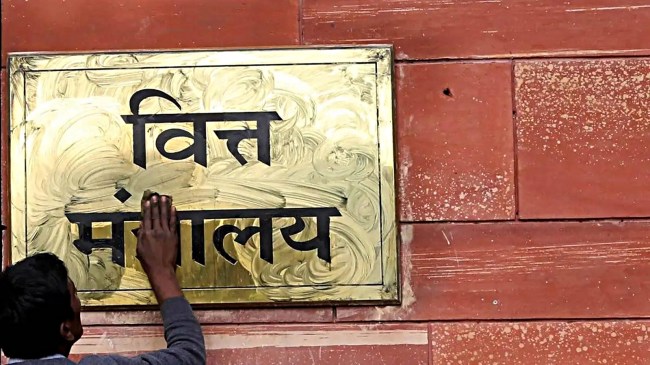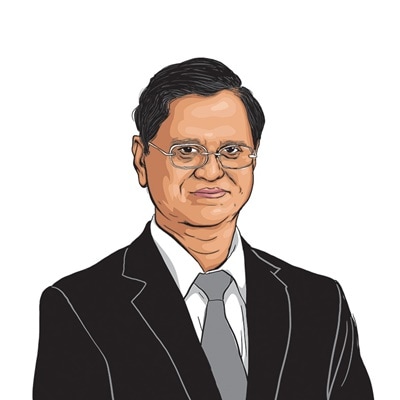Opinion Centre’s move to reform consultant appointments is needed. The process needs a systemic fix
Bringing in outside talent is essential for the government to deal with contemporary challenges
 When challenges relating to innovation and new technology in the economic and financial fields emerge, they become extraordinarily important and require quick solutions. The government needs talent and expertise only temporarily to manage these challenges.
When challenges relating to innovation and new technology in the economic and financial fields emerge, they become extraordinarily important and require quick solutions. The government needs talent and expertise only temporarily to manage these challenges. The Government of India has signalled its resolve to reform the appointment system for individual consultants, which major departments such as Economic Affairs, as well as NITI Aayog, use extensively.
Concerned departments select consultants (including young professionals and interns) by determining their own systems. These positions are not part of what has been termed the lateral entry system, and the appointments are not made through the Union Public Service Commission (UPSC) or Staff Selection Commission (SSC). Usually, the consultants are appointed for a period of up to two years, and their terms can be extended up to a total period of five years, though some have managed to stay longer. The government probably wants to streamline the system of selection, extension and maximum period.
The practice of appointing individual consultants raises many questions. Why does the government need individual consultants in place of regular staff? Is the contractualisation of government jobs a healthy practice? Can the government put in place a streamlined system for individual consultants?
The Government of India is primarily charged with the provision of public goods and services such as defence, internal security, currency management etc. As these are of a permanent nature, the government understandably opted for a system of organised civil services in which officers serve throughout their careers. These services have delivered excellent performances in their respective domains.
Over the years, however, the government ventured into many non-core economic and commercial services and businesses. Many public sector enterprises (PSEs) were established in industries exclusively reserved for the public sector, including infrastructure, basic metals, power generation, machine manufacturing and the like. The government also took over a considerable number of financial businesses — banks, insurance companies and so on. Running these PSEs would have required people with different skillsets, and different remuneration packages for them. Instead, however, their pay scales were aligned with those of government servants and their careers protected in the same way using the fig leaf of these enterprises being instrumentalities of the state.
This structural choice had serious consequences for the productivity and efficiency of PSEs, forcing the government to finally open up all reserved sectors to the private sector, although their personnel policies remained constrained by the limitations of being instrumentalities of the state. The government has been struggling to find solutions. A system of performance bonuses was institutionalised. Recently, the government decided to open up some positions in public-sector banks to private-sector talent, although it remains unclear whether their salaries and benefits will be closer to those of the private sector.
The government also had to expand its policymaking as developments such as the establishment of global manufacturing value chains and services shifting to electronic modes changed the rules of trade, technology and the financial system. This required not only specialised knowledge but also more technocratic and nimble-footed policymaking. The existing system was not suited to coping with these emerging requirements, such as dealing with start-ups, e-commerce, digital infrastructure and so on.
The Department of Economic Affairs (DEA), which I headed for two years, is one example. It is charged with framing policy and legislation in these emerging fields. In the past decade, it has facilitated the enactment of many new laws such as the Insolvency and Bankruptcy Code, International Financial Services Centres Authority Act and Fugitive Economic Offenders Act. Some cutting-edge laws did not see the light of day, such as the Financial Resolution and Deposit Insurance Bill and Banning of Cryptocurrency and Regulation of Official Digital Currency Bill.
The DEA has generally managed to get the best talent from the organised services and has evolved a forward-looking working ecosystem, using its interactions with leading international organisations like the World Bank to keep abreast of new developments. Still, it did not have all the talent, skills and expertise to develop the required policy frameworks and legislation. Quite a few options were tried.
The department harnessed talent from the private sector, think tanks and consultancies in two major ways. First, it hired individuals with specialised domain knowledge and experience as consultants and young professionals. Second, it entered into agreements with a slew of organisations, including the National Institute of Public Finance and Policy, the Indira Gandhi Institute of Development Research and Vidhi Centre for Legal Policy. These organisations hired experts and provided advisory services, enabling DEA to manage its skill deficit.
When challenges relating to innovation and new technology in the economic and financial fields emerge, they become extraordinarily important and require quick solutions. The government needs talent and expertise only temporarily to manage these challenges. Once policy is developed and programmes formulated, they are embedded in the larger permanent system.
A system of short-term consulting appointments at market-related compensation is best for managing these challenges. There is some trouble, however, as many of these consultants and professionals want to stay on longer than needed and be absorbed permanently into government service. That generates considerable tension in the system, and also undermines the value of the system of individual consultants.
Therefore, this requires a systemic fix. It would be advisable for the government to reform the system and fix a firm limit of two or three years for individual consultants, with an extension up to a maximum period of five years only in exceptional cases. Such a streamlined system would satisfy both public and individual interests.
The writer is former Finance and Economic Affairs Secretary



